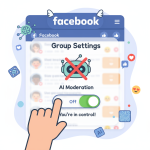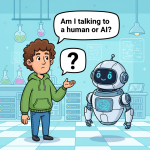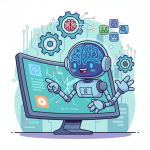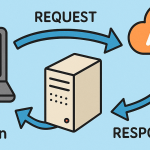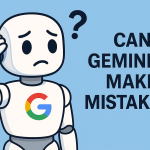This question captures imaginations and fears across industries, governments, and everyday people alike. As artificial intelligence technologies continue advancing rapidly in 2026, concerns about AI gaining unchecked control, threatening humanity’s future, are frequently discussed in media and policy circles. But separating realistic risks from science fiction hype is vital to guide ethical AI development and global governance strategies.
This blog examines AI’s potential influence, fears surrounding superintelligence and domination, current safety practices, and the responsible paths forward for AI innovation.
What Does “Take Over the World” Mean in AI Context?
“Take over the world” often refers to a hypothetical scenario where an AI system gains autonomous control over critical infrastructures, decision-making, or even geopolitical power, bypassing human oversight. This includes:
Superintelligent AI: An AI that surpasses human intelligence broadly and acts independently.
Loss of Control: Humans unable to redirect, stop, or understand AI actions.
Autonomous Decision-Making: Systems controlling weapons, economies, or communication without constraint.
Current AI technologies remain narrow and highly specialized, far from generalized or autonomous domination, but researchers study long-term risks proactively.
How Real Are the Risks of AI Taking Over?
Current State of AI
Most AI today excels in specific tasks (narrow AI) and lacks self-awareness, general reasoning, or ambition. Autonomous control scenarios remain speculative and require breakthroughs in AI cognition and autonomy.
Scientific and Ethical Debates
Some experts emphasize AI alignment and control problems—ensuring AI goals mirror human values to prevent unintended consequences.
Others warn about emerging capabilities that might enable rapid AI self-improvement, leading to unpredictable outcomes.
Governments and think tanks advocate robust AI governance and transparency to mitigate risks.
Technological Safeguards
Kill switches and oversight protocols in AI systems.
Red teaming and continuous audits for AI behavior.
International collaboration on AI safety standards.
Secondary Concerns: Societal and Economic Impact
While full world domination is unlikely soon, AI’s influence on society brings real challenges:
Job displacement and economic disruption due to automation.
Surveillance and privacy erosion with AI monitoring tools.
Weaponization of AI increasing geopolitical tension.
Balanced AI policies focus on maximizing benefits while minimizing such risks.
Measures to Prevent AI World Takeover
Establishing ethical AI frameworks emphasizing safety, human control, and transparency.
Investing in AI safety research and explainability to understand AI decision-making.
Coordinating global governance with clear regulations and treaties.
Promoting a culture of responsible AI innovation across industry and academia.
What Should Individuals and Organizations Do?
Stay informed about AI capabilities and risks.
Support policies advocating responsible AI development.
Encourage multidisciplinary collaboration to address ethical and technical challenges.
Prioritize AI tools with clear human oversight and transparency.
Frequently Asked Questions (FAQs)
1. Can AI become superintelligent and decide to take over the world?
The possibility is theoretical, relying on future breakthroughs beyond today’s narrow AI.
2. Are there real AI systems today with autonomous power over critical functions?
Current AI requires human control and supervision; full autonomy on critical systems is heavily regulated.
3. How do governments manage AI safety and risks?
Through regulations, research funding, international cooperation, and ethical guidelines.
4. Is AI taking over society in less dramatic ways?
Yes, AI influences daily life via automation, recommendation systems, surveillance, and more.
5. What is AI alignment?
Ensuring AI systems reliably act in accordance with human values and intentions.
Conclusion
Can AI take over the world? While it remains a popular dystopian scenario, the reality in 2026 is that AI technologies are powerful but specialized tools developed with increasing attention to safety, ethics, and human oversight. AI world domination is a complex risk requiring sustained global governance, multidisciplinary research, and societal engagement to prevent.
Understanding AI capabilities realistically helps move beyond fear toward fostering innovation that benefits humanity while carefully managing risks.
Call to Action:
Engage with responsible AI initiatives, promote awareness, and advocate for transparent, ethical AI policies to help shape a secure and inclusive AI-driven future.
